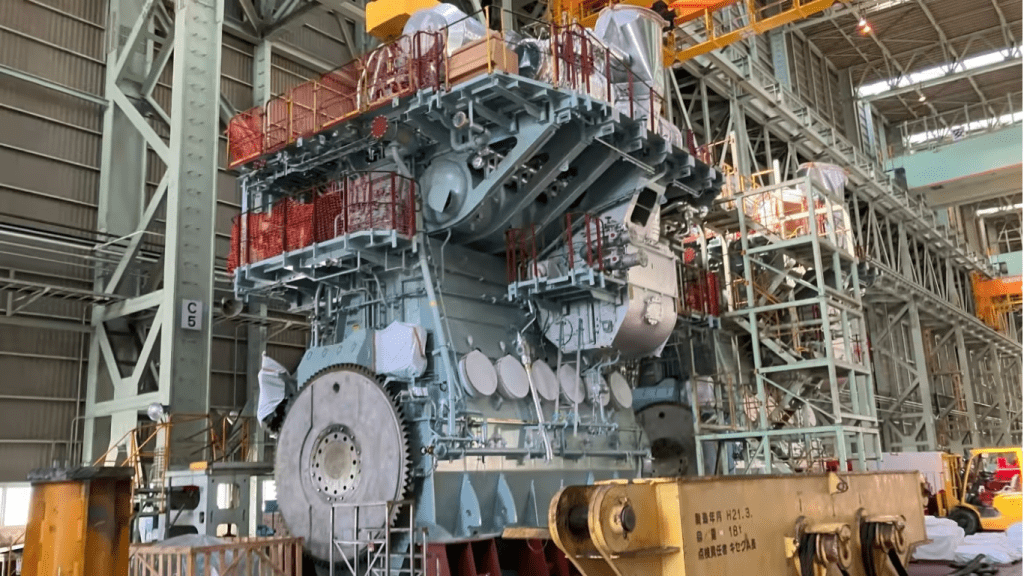Hitachi Zosen to Convert Ship Engines for Green Methanol

Japanese engineering company Hitachi Zosen plans to develop technology to convert ship engines to run on green methanol, aiming to tap into rising demand for cleaner shipping fuels driven by the industry’s push for decarbonization.
Hitachi Zosen will work on the technology with Germany’s Man Energy Solutions, which designs a number of engines currently manufactured by Hitachi Zosen. Existing engines that run on heavy fuel oil will be modified to also run on methanol while still installed on ships.
Green methanol is essentially a zero-emission fuel, including production and combustion, since it is derived from such sources as municipal waste, and carbon dioxide is recovered during production.
Because the primary components and main structure of the engines can be used as they are, the conversion process is expected to be relatively quick at around one to two months. In contrast, buying a new ship with green-methanol-compatible engines would take years from order to delivery.
Test operations will begin in 2024 at a Hitachi Zosen plant in Kumamoto prefecture, on Japan’s southernmost main island of Kyushu. Workers will try to ascertain the optimum angle, frequency and speed of fuel injection so as to effectively manage the internal temperature of the dual-fuel test engine and suppress the emission of harmful substances.
Another advantage of converting existing engines is cost. The cost of modifying an engine with Hitachi Zosen’s method is expected to be one-third the cost of replacing it with a new engine, although ships generally do not get their engines replaced after beginning operations. Ships typically have a lifespan of about 20 years.
Potential downsides to using green methanol include its current cost — around two to three times higher than heavy oil — and supply security.
But the green methanol engine market is already more developed than that for ammonia, another potential next-generation ship fuel. Mitsui Engineering & Shipbuilding and other companies have already commercialized green methanol engines for new ships.

Liquefied natural gas has emerged as a popular maritime fuel that lowers ships’ environmental impact, but the reduction in CO2 emissions compared to heavy oil is only about 20% to 30%.
Converting engines to use methanol is expected to meet demand from shipping companies seeking to urgently reduce their environmental impact, with Man Energy Solutions having already signed contracts with several firms to modify their engines for methanol.
Retailers like Amazon and Swedish furniture giant Ikea are aiming to reduce CO2 emissions from their cargo carriers to zero by 2040.
International regulations on CO2 emissions from ships already in operation were introduced this year, including measures to restrict engine output if fuel efficiency does not meet standards.
CO2 emissions from international shipping account for approximately 2% of the world’s total, according to the International Maritime Organization, which adopted a goal in July to reduce maritime greenhouse gas emissions to virtually zero by around 2050.

